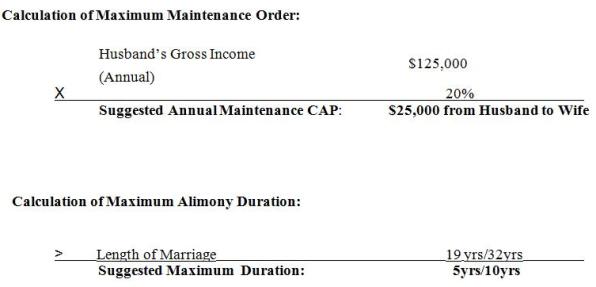Texas Child Support Arrears – How Far Back and How Much WiIl a Parent Pay?
In Texas it is the responsibility of a mother and father to adequately support their child. An adequate support usually comes in the form of child support payments monthly. It is a common mistake of judgment to attempt to hide from child support obligations or willfully ignore the obligation. Intentional non-payment gives rise to contempt proceedings
The circumstances regarding the parent’s decision not to pay child support is considered by the court in contempt proceedings. Texas Family Code 154.131 strictly deals with retroactive child support payments. There are four factors a Texas Court will consider when determining how far back a parent must make child support back-payments. They are:
- If the mother of the child had made any previous attempts to notify the obligor (delinquent parent) of his paternity or probable paternity;
- If the obligor (delinquent parent) had knowledge of his paternity or probable paternity;
- If the order of retroactive child support will impose an undue financial hardship on the obligor (delinquent parent) or the obligor’s family; and
- If the obligor (delinquent parent) has provided actual support or other necessities before the filing of the action.
All these factors will be taken into consideration by a Texas Court when determining how far back and how much an individual must pay child support.
If it is reasonable and in the best interest of the child then the Texas Family Code 154.131(c) allows for the Court to assign retroactive child support payments that only extends back 4 years. The option to confine retroactive child support payments to only four years may be contested by the parent requesting the child support. A parent that is contesting the Court’s decision in allowing the delinquent parent to pay back only four years’ worth of back-payments will have the burden of proof to establish:
- The Obligor (delinquent parent) knew or should have known that he was the father of the child for whom the support is sought
And
- The Obligor (delinquent parent) sought to avoid the establishment of support obligation to the child
If, however, a father is delinquent on child support because he did not know of the child’s existence, was told by the mother that his support was not wanted or needed, or the father had been paying a certain amount prior to the filling of the child support then the Court will likely only award retroactive payments of four years or less. If the father has willfully refused or ignored his obligation to pay support and adequately support his child, then the Court has the authority to order that delinquent parent to pay retroactive child support payments dating back to the day the child was born.
Retroactive child support can be complex and tricky considering the multiple circumstances in which this problem may arise. If you find yourself in this predicament and have received a summons to a Texas Child Support Court, then contact an experienced attorney immediately to see what can be done and how to best effetely address this unavoidable issue.
What Happens in a Texas Divorce ?
Divorce can be frustrating, confusing, and resentful. Divorce is never a pleasant experience even in the most amicable terms. It is important to know what you are in for when a divorce is filed. An original petition will be filed, and your spouse must be served with a process server.
After service of the original petition, the Petitioner may file for a Temporary Restraining Order (“TRO”) to protect the child and marital estate. Once a TRO is granted by the District Judge, a temporary order hearing will be set within 14 days. This temporary order hearing is extremely important and will determine the direction of the case.
Temporary Order hearings are usually condensed to 20 minutes a side depending on the complexities of the case. Within this 20 minutes, you will have to put on evidence for your entire case regarding custody of the children, management of the marital estate, and any other considerations such as receivership of a business.
After the temporary orders hearing, the case will dive into full throttle litigation. Discovery on both sides is usually conducted including interrogatories, admissions, and production of documentations. The documents that are usually requested consists of bank statements, retirement pensions, social media pages, text messages, and emails. Each case requires specific Discovery requests that are narrowly tailored to the facts presented. Discovery can last months and usually follow with motions to compel and sanctions. In highly contested cases the rigors of discovery and compiling documentation can be brutal.
During the Discovery phase, Depositions may be warranted. Depositions consists of your attorney questioning your spouse and any other witnesses that are relevant to the case for impeachment purposes. Depositions are necessary if the case will go to a jury, because impeachment of your spouse is a necessity to prove your truthfulness.
Mediation is, more often than not, mandatory in Courts, but this is the general rule. Certain Courts in the Dallas, Fort Worth, and Collin county do not require mandatory mediation. Each Court has its own rules of procedure and requirements. If the Mediation fails to produce a settlement between you and your spouse, then the only thing left is trial.
Depending on the complexities of the case and assets, a trial can last half a day or be a three-day trial. Most trials are before the District Judge. Certain facts may give rise to a jury trial but a jury trial is more costly and can take up more time. After the trial is complete the parties will have to wait for a ruling. This can take days to months depending on the case and jurisdiction.
When the final ruling is given to all parties, the Judge will charge one party to create a final order that will be submitted to the Court. This can give rise to more litigation depending on the interpretation of the Judge’s rulings by both parties. Finally, when both parties agree to a final order or the Judge determines which version of the final order is proper, then the case will be over.
Divorce can be a painful process that lasts 6 months to three years depending on the circumstances and the nature of the parties involved. If you are about to file for a Divorce in the DFW metroplex call Nacol Law Firm so that you have an experienced family law attorney to represent your interests throughout the process.
Julian Nacol
Dallas Divorce Attorney
Nacol Law Firm PC
Divorce Really Sucks (a view from the trenches) Part II
Psychological Impact Of Marital Dissolution On The Nuclear Family – or
How does divorce make you feel?
Why do marriages fail? This writer has noted that there are a number of reoccurring causes for failure of the marital relationship. Among them, a nonexclusive list of these causes are:
- Control issues. Clearly unwanted control of the marital relationship from this writer’s view is the most dominating cause of marital failure. Control can be mental, physical or emotional. It can extend to who manages the marital estate, who has decision powers or input regarding asset acquisition and who shares information that goes to the core and lifetime issues of a marriage. Control is also impacted by simple unsolicited power – who manages the feelings of the husband and wife; are there limitations or artificial prerequisites to expressing feelings; are there false expectations; are there abuse issues. Abuse issues can be mental or physical. Although physical abuse is the most reported, clearly emotional abuse is an overwhelming reason for divorce as it relates to control of one spouse over the other.
- Outside forces. Parents, grandparents, great grandparents influence on the marital relationship, separate estates, proceeds, trusts, lands, stipends, independent wealth issues, religious issues, and step-children issues. Frequently, in blended families, step-children, children of the half blood, adopted or otherwise can be a crowning achievement for the blended family or a death sentence to its continuation. Although men and women wish, choose, and strive to accept another person’s child as their own, and in many cases are extremely successful in that regard, more often than not, artificial and unrealistic expectations of one spouse as to the other spouse’s attitude toward his or her children disrupt the marital relationship and place the non-blood spouse in an impossible position. Children of another marriage are frequently, depending on age and maturity, excellent adept manipulators of this difficult situation, sometimes terribly aggravating the problem and accelerating the breakdown of the marriage.
- Adultery. Adultery, though a cause of divorce, is almost always a symptom rather than a cause. People seek escape from stress, control, abuse, alcoholism, etc. both male and female, and often adultery (if not obsessive or compulsive) is a mere anesthetic and self-medication for feeling bad. When the emotional divorce has not been accepted, when the relationship has devolved into anxiety, depression, or high stress levels, people seek relief from those pains in others.
- Addiction. Alcoholism, drug abuse, gambling addiction, illicit sex addiction all contribute to and are conducive to a failed marital relationship. By far, alcoholism is the highest and best candidate for failure in the view of this writer. However, any form of addictive behavior which places an addictive person’s type of conduct or activity in the center of a relationship, at some point and time in the future, is dooming the husband and wife for the divorce lawyer’s office. There have been remarkable strides in treatment in recent years. There are rehabilitative, medical, and therapeutic answers to many of these issues that did not exist in the past. Still, without exception, there must be a full acceptance of the addicted person of his or her problem for these therapeutic means to result in an acceptable end.
The Nacol Law Firm PC
Law office of Attorney Mark Nacol
Serving clients in the Dallas – Fort Worth Metroplex area for over 30 years
Tel: 972-690-3333
Divorce Really Sucks (a view from the trenches), Part I
Psychological Impact Of Marital Dissolution On The Nuclear Family or
How does divorce make you feel?
Make no mistake, there are always two divorces. There is legal divorce, and there is emotional divorce. Although inextricably intertwined, they are distinct and separate with their own life and death, each fueling and affecting the other.
Aside from the loss of a spouse, child or parent to death, it has been said that divorce is the most egregious, emotionally debilitating experience a man or woman may have in a lifetime. The grief to each spouse, regardless of fault or equities, is very real, personal, deep and frequently damaging.
Aside from dispute resolution and collaborative law possibilities, which generally may apply to some people, the judicial adversary system is perhaps the most misplaced, illogical and painful method one might devise to dissolve a bond as culturally significant and historically necessary as the marital compact. Regrettably, it is what we have today to resolve marital conflicts.
The legal marriage is formed either by statute or common law. Statutorily one may secure their priest, Rabbi, or other authorized person to join the parties in union by purchasing a marriage license, taking a blood test and going through the formal procedures and ceremony. Additionally, you may, under statute, marry by filing forms with the state signifying the union. In Texas, flowing from the Mexican/Spanish influence on our statutes and the large distances between cities, the time and effort necessary to find a preacher in days gone by, two parties may marry by common law agreement. Such a marriage is binding upon agreement of the parties to be married (irrevocable present agreement), cohabitating together, and holding themselves out to the public as man and wife ratifying the relationship.
Regardless of which of the three procedures one takes to become married, once accomplished it is binding and can only be dissolved by divorce. Divorce means lawyers, the adversary system, the frequent unnecessary involvement of the children in the procedure, and significant grief.
It has been shown to be very constructive, useful, and therapeutic to entertain marriage counseling and/or divorce counseling prior to, during, and following a divorce procedure. There is no question that securing the services of a quality counselor, properly qualified to assist a husband and wife going through divorce, yields long-term benefits and faster recovery time, though the counseling often leads to serious emotional disruption and further pain before recognizing therapeutic results.
Once married, the divorce rate is over 50%. 95% of the population is married by age 55 versus 72% in 1970.The general life expectancy of a marriage is approximately 7 years, 8 months for the first marriage, and 7 years, 4 months for the second marriage.
The relative costs and expense in dissolving the marital relationship is directly proportional to the acceptance and the decision to divorce emotionally which can occur days, weeks, months, or years prior to the time you meet your attorney to commence the divorce proceeding, or never at all.
The Nacol Law Firm PC
Law office of Attorneys Mark Nacol and Julian Nacol
Dallas Divorce Attorneys
Serving clients in the Dallas – Fort Worth Metroplex area for over 30 years
Tel: 972-690-3333
Texas Divorce Spousal Maintenance Calculator
Texas is one of the most restrictive states when it comes to ordering spousal support; or “maintenance” as it is defined in the Texas statute. Texas House Bill 901 changing the spousal maintenance law in the Texas Family Code became effective for divorce cases on September 1, 2011. The bill revised the conditions that establish eligibility for spousal maintenance, commonly referred to as alimony and changed the factors required to be considered by a court in determining the nature, amount, duration, and manner of periodic payments for a spouse who is eligible to receive maintenance.
The court that determines a spouse is eligible to receive maintenance shall determine the nature, amount, duration, and manner of periodic payments by considering all relevant factors, including:
(1) each spouse’s ability to provide for that spouse’s minimum reasonable needs independently, considering that spouse’s financial resources on dissolution of the marriage;
(2) the education and employment skills of the spouses, the time necessary to acquire sufficient education or training to enable the spouse seeking maintenance to earn sufficient income, and the availability and feasibility of that education or training;
(3) the duration of the marriage;
(4) the age, employment history, earning ability, and physical and emotional condition of the spouse seeking maintenance;
(5) the effect on each spouse’s ability to provide for that spouse’s minimum reasonable needs while providing periodic child support payments or maintenance, if applicable;
(6) acts by either spouse resulting in excessive or abnormal expenditures or destruction, concealment, or fraudulent disposition of community property, joint tenancy, or other property held in common;
(7) the contribution by one spouse to the education, training, or increased earning power of the other spouse;
(8) the property brought to the marriage by either spouse;
(9) the contribution of a spouse as homemaker;
(10) Marital misconduct, including adultery and cruel treatment, by either spouse during the marriage; and
(11) Any history or pattern of family violence, as defined by Section 71.004 of the Texas Family Code.
The maximum amount of spousal support that courts may award is the lesser of $5,000.00 per month or 20 percent of the payer’s average gross monthly income. This is the maximum amount of maintenance the court orders.
However, in all circumstances, the law provides that the Court shall order maintenance for the shortest reasonable period that allows the recipient to earn sufficient income to meet his or her “minimum reasonable needs” and as follows:
The Texas law mandates the maximum duration of support as follows:
Maintenance shall be paid for a maximum of:
• 5 years, if due to family violence conviction and marriage is under 10 years;
• 5 years, if marriage is between 10 and 20 years;
• 7 years, if marriage is between 20 and 30 years;
• 10 years, if marriage is 30 years or more;
except in the case of an incapacitating physical or mental disability, in which case the award may last as long as the disability.
In addition, the law allows the Texas Family Law Courts to terminate maintenance if the recipient “cohabits with another person in a permanent place of abode on a continuing, conjugal basis.”
Sample Calculation of Texas Spousal Support Maintenance:
NACOL LAW FIRM P.C.
8144 Walnut Hill Lane
Suite 1190
Dallas, Texas 75231
972-690-3333
Office Hours
Monday – Thursday, 8am – 5pm
Friday, 8:30am – 5pm
OUR BLOGS
SEARCH
JOIN OUR NETWORK

Attorney Mark A. Nacol is board certified in Civil Trial Law by the Texas Board of Legal Specialization








